Report by Thomas Hammarberg, Commissioner for Human Rights of the Council of Europe, following his visit to Italy from 26 to 27 May 2011
Summary
Commissioner Thomas Hammarberg and his delegation visited Italy from 26 to 27 May 2011. In the course of this visit the Commissioner held discussions with representatives of the Italian authorities and institutions as well as with members of civil society. The present report focuses on the following selected human rights issues:
I. Protection of the human rights of Roma and Sinti
Anti-Gypsyism in political discourse
The Commissioner continues to be concerned at the presence of racist and xenophobic political discourse in Italy, targeting notably Roma and Sinti. This type of discourse is a powerful vector of anti-Gypsyism in Italian society and as a result, it also offsets the benefits of social inclusion work for Roma and Sinti carried out around the country. The Commissioner calls on the Italian authorities to act urgently to address this phenomenon. Among the measures suggested feature self-regulatory initiatives by political parties and a vigorous implementation of the criminal law provisions against racist offences, some of which also need to be fine-tuned. In order to combat anti-Gypsyism, further efforts are needed to promote knowledge of Roma history and culture. The Commissioner reiterates that a wide dissemination and use, notably in schools, of the Council of Europe’s Fact Sheets on Roma History would make an important contribution to this endeavour.
Housing and evictions
Recent years have seen widespread evictions of Roma and Sinti from settlements in Italy, often in manners that are at variance with human rights standards. The declared state of “Nomad emergency” together with the legislation and extraordinary powers flowing from it, have provided the bedrock for the development of these practices, which have had a negative impact on the enjoyment by Roma and Sinti not only of the right to housing, but also of other human rights, including children’s right to education. The Commissioner urges the Italian authorities to act in accordance with international and Council of Europe standards in the field of housing and evictions, and to bring the situation fully into line with the revised European Social Charter, in light of the findings of the Committee of Social Rights in its June 2010 decision Centre on Housing Rights and Evictions (COHRE) against Italy.
Violent hate crimes
Reported instances of anti-Roma violence at the hands of private individuals, but also sometimes by law enforcement officials, point to a continuing need for the Italian authorities to improve their response to racially-motivated violence in general. The Commissioner calls on the Italian authorities to respect the relevant Council of Europe standards and use the latter’s extensive guidance on both improving the response of the police to racist offences and on combating racially-motivated misconduct by the police. In particular, the system for monitoring racist incidents and racist offences could be improved through the introduction of a more flexible and victim-friendly system of reporting and recording relevant incidents.
Statelessness
Many Roma who came to Italy from the former Yugoslavia in the 1960s and 70s and during the war in the 1990s still live in Italy today without Italian or any other citizenship. Their descendants, whose number is currently estimated at around 15 000, are also de facto stateless in Italy in spite of having been born and lived there all their lives. The Commissioner urges the Italian authorities to address this situation. He also reiterates his call for the ratification by Italy of the European Convention on Nationality without reservations.
Overall strategies for the inclusion of Roma and Sinti in society
There is a continuing need for a national strategy for the social inclusion of Roma and Sinti in Italy that would provide coherence to and support efforts at regional and local level in this field. As an interim step towards such a strategy, the Commissioner suggests the establishment of a task force at national level, which would support and service a network of regional and local stakeholders that are active in social inclusion work for Roma and Sinti. In order to maximise the strategy’s chances of producing long-term results, it should focus more heavily on social inclusion, non-discrimination and combating anti-Gypsyism and less on coercive measures such as forcible evictions and expulsions.
II. Protection of the human rights of migrants, including asylum seekers
Rescue operations and interceptions at sea
The Commissioner welcomes the invaluable efforts of the Italian authorities aimed at rescuing migrants on boats crossing the Mediterranean. He strongly encourages the Italian authorities to maintain their long-standing tradition of rescue, which is all the more indispensable in the current context of forced migration from Libya. He calls on the Italian authorities to ensure that in all cases where migrants are in distress at sea their rescue and safety enjoy absolute priority over all other considerations, including any lack of clarity and agreement, notably between Italy and Malta, about responsibilities for rescue. With reference to the operations carried out jointly with Libya in the central Mediterranean aimed at intercepting migrants fleeing Libya on boats and returning them there (so-called push-backs), the Commissioner urges the Italian authorities to discontinue and refrain from becoming involved in any practices in the field of interceptions at sea that may result in migrants being sent to places where they are at risk of ill treatment or onward refoulement.
Reception of migrants, including asylum seekers
The sharp increase in arrivals from the coasts of Northern Africa has put the Italian system of reception of migrants, including asylum seekers, under strain. The Italian authorities are encouraged to ensure that their reception arrangements can respond effectively to fluctuating trends in arrivals and asylum applications, notably by extending the capacity of the housing schemes administered by SPRAR, a publicly-funded network of local authorities and non-profit organisations. Progress is also needed to ensure that in all centres where they are accommodated, asylum seekers have adequate access to legal aid and psycho-social assistance. Special measures to identify and cater for the needs of vulnerable individuals should be effectively implemented. Lack of clarity concerning the nature of the centres where migrants are kept and the regime applicable to them (including detention or not) have contributed to jeopardising the rights of migrants. With reference to the repatriation of Tunisian nationals through “simplified procedures”, the Commissioner calls on the Italian authorities to ensure that the relevant human rights safeguards, including access to procedures to challenge removal, and the prohibition of collective expulsions are thoroughly respected.
Integration of refugees and other beneficiaries of international protection
There is a need to make progress on the front of establishing a reliable system to support the integration of refugees and other beneficiaries of international protection in Italian society. Noting that these persons sometimes become destitute or homeless, the Commissioner calls for a strengthening of local authorities’ capacity to provide accommodation and services, notably through the channelling of more funds and the involvement of more regions and municipalities. Further useful measures include a comprehensive review of laws and regulations that impact on refugee integration and the introduction of positive action measures, for instance on the labour market, that support integration at the initial stages following status recognition. The current difficulties encountered by refugees in accessing Italian nationality and the excessive delays they experience in obtaining family reunification should also be addressed.

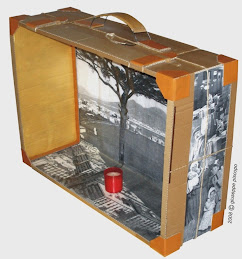





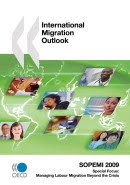



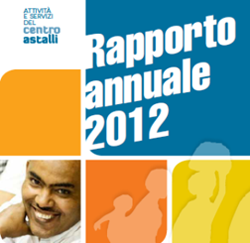


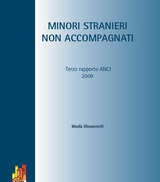
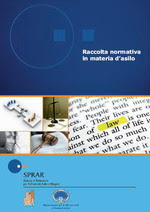




Nessun commento:
Posta un commento